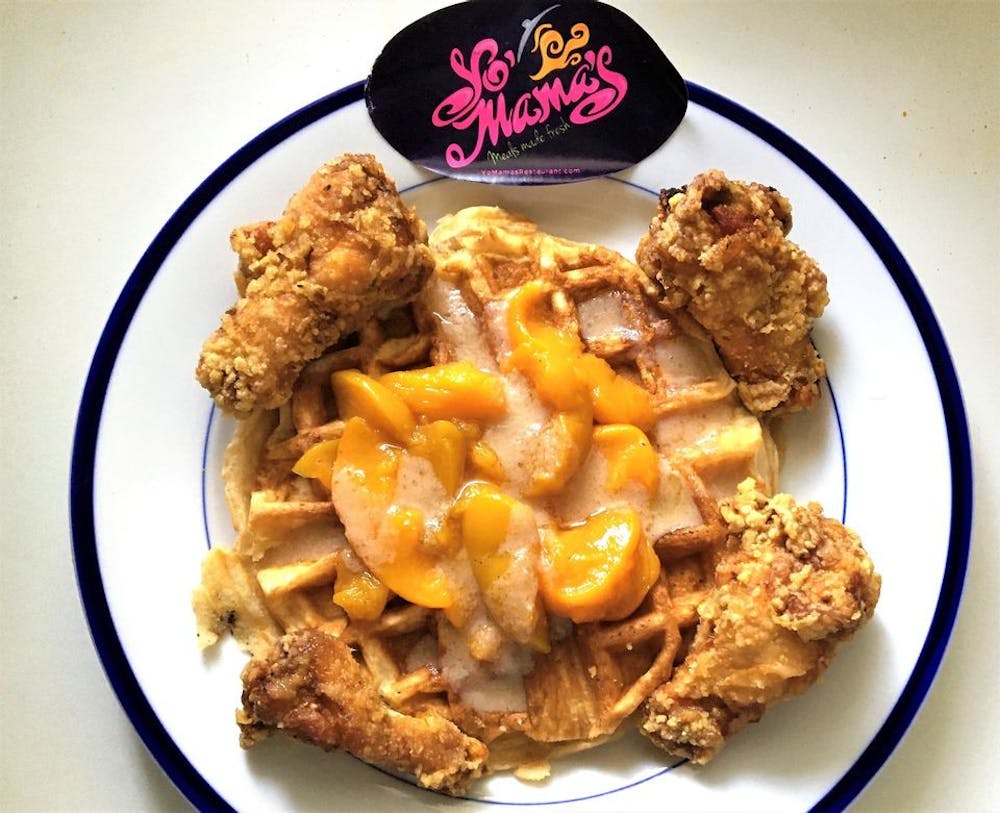Soul food is an important part of Black culture. It allows us to show our love for one another through nourishment and preparation — soul food connects the Black community. A nice full Sunday dinner loaded with greens, cornbread, mac and cheese, fried chicken and sweet potatoes is so fulfilling, it makes you hungry just thinking about it. With the holiday coming up, soul food will be spread across many Black families' tables.
But soul food didn’t originate in grandma’s kitchen.
According to Black Foodie, soul food originated from the Deep South, which includes Georgia, Mississippi and Alabama.
The traditions we use today were brought to America via the trans-Atlantic slave-trade. Enslaved people were given sparse food rations that were low in quality and nutritional essence, but they took these rations and turned them into something edible.
The enslaved people used African ways of cooking and adapted these methods to fit resources available. The dishes we know today were born out of struggle and survival, according to Black Foodie.
Here are four key ingredients that establish a soul food meal connecting us to our ancestors, according to Black Foodie: Rice, okra, pork and greens. These various additives are what essentially establish the meal. Just as we do today, our ancestors used cornbread to absorb the juices left behind from greens, known as potlikker.
After the Emancipation Proclamation, many enslaved people became free but were poor. So the majority of the foods they ate were either homegrown, or caught. Vegetables such as corn, sweet potatoes, turnips, cabbage and beans were grown in home gardens. They would also raise pigs and chickens on their land which provided meat. Some people even fished and caught wild freshwater catfish, which is still popular today.
The newly free Black people would sell the more substantial pieces of their pigs and would be left with the more undesirable cuts such as the feet, tails, ribs and intestines or chitlins.
Britannica said the term "soul food" was first used in print in 1964. This was during the rise of “Black pride,” when America started to celebrate many aspects of Black culture, including soul music.
If you’ve had one of these foods then you’ve experienced soul food and how important it is to American and Black culture: gumbo, fried okra, baked mac and cheese, banana pudding, peach cobbler, smothered chicken/pork chops, black-eyed peas, sweet potato pie and fried chicken.
All recipes magazine said Atlanta has the best overall soul food scene, with a mix of traditional, down home healthy, upscale and vegan soul food restaurants. Outside of the South, the top soul food scenes are in Chicago, the San Francisco Bay Area and New York City.
Black families use soul food cooking to show a sense of love and care for one another. My grandma once told me she uses her cooking to show love for her grandchildren by nurturing their body and soul.
“Giving to others fills us in so many ways,” Michal AviShai, a culinary arts therapist, told Huffpost. “And even more so when it’s cooking because feeding fulfills a survival need, and so our feeling of fulfillment comes not only from the good of the act of giving, but also the fact that we have ‘helped’ in some very primal way. We have given fuel.”
Nothing brings together a family more than a good meal. Sitting at the table and watching everyone enjoy something that we all have in common — a love for soul food — is a satisfying notion. Who knew that the simple gesture of cooking a meal could take one so far? Soul food is really for the soul.





